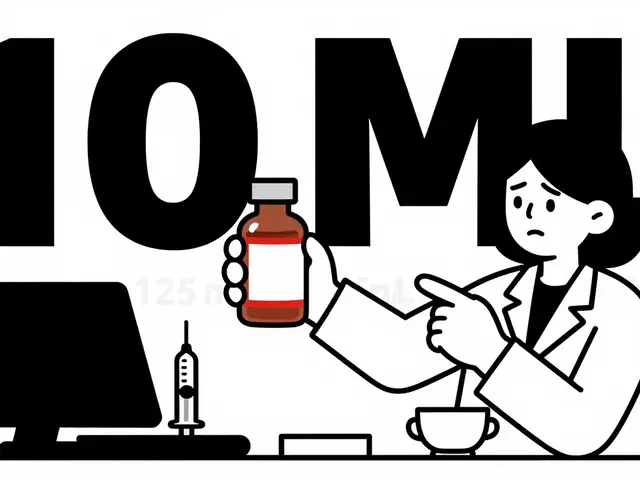Efavirenz – What You Need to Know
If you or someone you know has been prescribed efavirenz, you probably have a lot of questions. Efavirenz is an antiretroviral medicine used to treat HIV infection. It belongs to the NNRTI (non‑nucleoside reverse transcriptase inhibitor) class and works by stopping the virus from copying itself.
Doctors usually give efavirenz as part of a combination pill that includes other HIV drugs. Taking it with the right partners helps keep the virus suppressed and protects your immune system. Most people start on efavirenz when they begin treatment, but some may switch to it later if their previous regimen isn’t working well.
How to Take Efavirenz Correctly
The standard adult dose is 600 mg once a day, taken on an empty stomach. That means you should swallow the tablet at least one hour before or two hours after eating. Food can lower the amount of medicine your body absorbs, which might make the treatment less effective.
If you miss a dose, take it as soon as you remember—unless it’s almost time for your next dose. In that case, skip the missed pill and continue with your regular schedule. Don’t double up on pills; doing so can increase side effects.
Alcohol isn’t forbidden, but heavy drinking can make efavirenz side effects worse. Talk to your doctor about safe limits if you regularly drink.
Common Side Effects & When to Call a Doctor
Most people feel some mild side effects when they start efavirenz. The most common are:
- Dizziness or light‑headedness
- Sleep problems (insomnia, vivid dreams)
- Nausea and stomach upset
- Rash
These usually improve after a few weeks. If you notice severe rash, fever, or signs of an allergic reaction, get medical help right away.
Efavirenz can also affect your mood. Some users report anxiety, depression, or unusual thoughts. If these feelings become intense or you have thoughts of harming yourself, contact a healthcare professional immediately.
Regular blood tests are important. Efavirenz can raise liver enzymes, so doctors will check your liver function every few months. Tell your doctor if you feel persistent fatigue, yellow skin/eyes, or dark urine—these could signal liver trouble.
Drug interactions matter a lot with efavirenz. Certain anti‑seizure meds, St. John’s wort, and some antibiotics can lower its effectiveness. Always give your pharmacist a full list of medicines and supplements you’re taking.
Pregnant women should discuss efavirenz with their doctor. While the drug is effective, there are specific guidelines for use during pregnancy to protect both mother and baby.
In short, efavirenz can be a powerful part of HIV treatment when taken correctly. Follow the dosing instructions, watch for side effects, keep up with lab checks, and stay in touch with your healthcare team. If you’re unsure about anything—dose timing, new symptoms, or other meds—don’t hesitate to ask your doctor.
Remember: staying consistent with your HIV regimen is the best way to keep the virus under control. Efavirenz works best when it’s part of a steady routine and when you’re aware of how it should fit into your daily life.
- By Percival Harrington
- /
- 14 May 2023
Efavirenz Side Effects: What to Expect and How to Manage Them
As a blogger, I recently delved into the topic of Efavirenz side effects and learned what to expect and how to manage them. Efavirenz is an antiretroviral medication used to treat HIV, but it can come with some challenging side effects. The most common ones include dizziness, insomnia, and vivid dreams. Thankfully, there are ways to manage these side effects, such as adjusting the time you take the medication and practicing relaxation techniques. It's important to communicate with your healthcare provider about any side effects you experience, as they can help you find the best solution to maintain your health and well-being.






